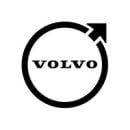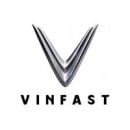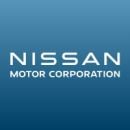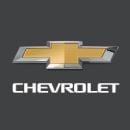Through years of development and advances in battery technology, electric vehicles (EVs) have become a popular mode of transportation worldwide. Once considered a niche luxury item costing hundreds of thousands of dollars, EVs are now far more accessible, and their technology has been proven capable of powering not only passenger cars but also long-haul freight trucks and public transit systems. Beyond providing environmental benefits over combustion engine vehicles, EVs are increasingly serving as a testing ground for advanced technologies, including artificial intelligence, computer vision and robotaxis — a combination of both.
Electric Car Companies to Know
- Tesla
- BYD
- General Motors
- Rivian
- Lucid Motors
- NIO
- BMW Group
- XPeng Motors
- Ford
Data from Statista shows revenue in the global electric vehicle (EV) market is expected to reach more than $993 billion in 2025, climbing to over $1.1 trillion in 2030, meaning the industry is still poised to grow. Take a look at this list of electric car companies helping increase mobility while reducing their energy footprint.
Electric Car Companies to Know
Rivian has an electric vehicle lineup that consists of three SUVs and a pickup truck. Each vehicle has an interior that’s “made from 100-percent animal-free materials” and battery packs that are easily recyclable, according to the company’s website. To supplement its home and on-the-go chargers, Rivian has made its vehicles compatible with Tesla Superchargers, giving users even more charging options when traveling.
Volvo’s vehicles include four pure electric car offerings along with five hybrid models. The latest electric additions of the EX90 SUV and EX30 SUV give drivers a larger and more compact option to explore. The company is aiming to have EVs make up as much as 100 percent of its global sales by 2030 and to achieve zero emissions by 2040.
Karma Automotive builds luxury electric vehicles — currently a sedan and super coupe. The Revero can travel up to 80 miles solely on electric power before a generator kicks in to provide another 280 miles of distance. Meanwhile, the Kaveya can reach maximum speeds of 180 miles per hour and possesses 1,000 horsepower. Karma Automotive has two more models — a four-seater and grand touring utility vehicle — on the way.
Xiaomi is a Chinese technology company that manufactures a wide range of consumer electronics and smart devices, including laptops, smartphones, wearables — and, starting in 2024, electric vehicles. Through its subsidiary Xiaomi Auto, the company released its first model, the SU7, a full-size four-door electric sedan. Looking ahead, Xiaomi aims to integrate its EVs with its existing products to create a “Human x Car x Home” ecosystem, and would like to become a top global automaker in the next 15 to 20 years. The SU7 is currently only available for sale in mainland China, but is expected to be available in Europe by 2027.
Daimler is on track to electrify the commercial vehicle sector with its eMobility strategy. By combining its truck technology with electric battery power, the company has produced several all-electric truck models, including the eCascadia. In addition, Daimler has teamed up with Thomas Built Buses to design all-electric school buses for school districts across the U.S.
Faraday Future builds luxury vehicles that are both electrified and equipped with artificial intelligence features. The company’s AI technology suite and vehicle architecture support LiDAR systems, safety features like automatic emergency braking, a high-powered in-vehicle network and autonomous driving. Customers who purchase any FF 91 model also receive a portable charger that can be installed by Faraday Future’s partner Qmerit.
VinFast has developed compact, standard and large SUVs that are electrified and built with a tech-heavy approach. Features include lane centering assist, adaptive cruise control and an in-car voice assistant. VinFast offers its own home charger that charges up to eight times faster than the typical 120-volt wall outlet, according to the company. In addition, VinFast’s models work with over 90,000 Level 2 and 3 public chargers in North America.
Known as the Chinese rival of Tesla, Xpeng Motors complements its smart driving features with an enhanced design for its electric vehicles. The company has outfitted its lineup with a new high-voltage platform that can complete charging in five minutes while delivering a range of over 120 miles on a full battery. Xpeng Motors also equips its EVs with a thermal management system, increasing batteries’ efficiency and endurance.
BYD is a Chinese electric vehicle manufacturer. Founded in the early 2000s, the company began as a battery manufacturer but now develops fully electric and plug-in hybrid passenger cars, trucks and buses. BYD has rapidly become a leader in the EV space through quick expansions into markets such as Latin America and Europe.
With over 100 years of experience, General Motors is pushing for an all-electric future for the car industry. The company strives to create electric vehicles that are inclusive and accessible. Through its Ultium platform, General Motors can create several models of EVs with a flexible battery architecture. As a result, the company now offers electric versions of models like the Chevy Silverado, Cadillac ESCALADE and GMC Sierra.
Toyota turned heads with hybrid models like the Toyota Prius and Toyota Camry, and the brand now boasts a diverse fleet of hybrid, plug-in hybrid, fuel cell electric and all-electric vehicles. The Toyota Mirai is a fuel cell-powered sedan that gets its power from hydrogen and oxygen and takes as little as five minutes to recharge. Meanwhile, the Toyota bZ4X is an SUV with an electric battery that enables it to travel over an estimated 250 miles on a single charge.
As part of the BMW Group, BMW has added three all-electric sedans and an all-electric SUV to its lineup. All electric models can travel over 300 miles on a single charge and connect to the My BMW app for remote monitoring. When it comes to home charging, BMW provides customers with a BMW Wallbox that can fully charge an EV in under 12 hours. The company’s electric models are compatible with public Level 2 and 3 chargers as well.
NIO produces nine electric vehicle models, including its ES8 flagship SUV and the EP9, which the company boasts is “the fastest electric car in the world” as it set two lap records in 2017. NIO cars are available in China, and the company has begun to expand into Norway, Germany and the Netherlands as well. NIO also has an R&D center in San Jose, California.
Mercedes-Benz has upgraded its luxury lineup with a slate of electric vehicles, including the EQE Sedan and the EQB SUV. Each EV monitors its battery levels to suggest a good time to recharge and quickly finds public chargers through the Mercedes-Benz app. Mercedes-Benz drivers can also visit the brand’s website to access an adjustable charging calculator for their specific electric model.
Nissan has been producing its all-electric LEAF since 2010, when it debuted as the first electric vehicle available on the mass market. The company added another model to its EV portfolio in 2023 with the release of the Nissan ARIYA. To make getting around easier for its EV customers, Nissan is planning to launch its own network of chargers, which drivers will be able to find via the MyNISSAN app.
Tesla is one of the leading electric car manufacturers and developers in the world. It was one of the first companies to perfect EV design. In addition to developing and marketing high-speed electric vehicles, the company also develops robotaxis which can operate autonomously and are being tested in rideshare settings.
Piaggio Fast Forward is the creator of Gita, an intuitive robot that pairs with people to help them transport goods wherever they go. Though not an electric car, Gita is fully rechargeable and uses machine vision technology to track movement and stay on course with the person it is paired with while possessing “pedestrian etiquette” capabilities to avoid people and obstacles.
In addition to having multiple vehicle models available as hybrids, Ford also produces three all-electric vehicles. That includes the E-Transit, which is a commercial cargo van offered with three different options for length and roof height. For customers who choose the Mustang Mach-E or F-150 Lightning, Ford can install a complimentary home charger.
Lucid Motors aims to combine sustainability with luxury, developing smart electric vehicles equipped with the features of traditional luxury cars. Lucid Motors’ vehicles are capable of reaching 60 miles per hour in less than 2 seconds, and can complete 200 miles of charging in around 12 minutes. They also feature smart ecosystems that enable voice control, mobile connectivity and cutting-edge GPS technology.
Chevrolet has three fully-electric vehicle models on the market — the Equinox EV, Blazer EV and Silverado EV. Drivers can travel up to 319 miles on a single charge in the Equinox EV and around 440 miles in the Silverado EV. Chevy’s EV models have access to thousands of public chargers across the U.S. and Canada, and drivers can locate nearby chargers with the myChevrolet app.
Polestar is a Swedish company that makes high-performance electric vehicles. Prior to focusing on EVs, Polestar worked closely with Volvo, developing performance software upgrades for certain vehicles. Currently, Polestar develops three car models, which are capable of delivering up to 540 horsepower and sprinting from 0 to 60 miles per hour in as little as 3.8 seconds.
Volkswagen broke into the EV sector with the ID.4, which was released near the end of 2020. The company plans to expand its electric vehicle suite with the additions of an all-electric camper van in the ID. Buzz and an all-electric sedan in the ID.7. In partnership with Electrify America, Volkswagen has made its EVs compatible with home chargers, but these must be purchased separately from Volkswagen vehicles.
Frequently Asked Questions
Who is leading in electric vehicles?
Globally, BYD is leading EV sales, selling 1.6 million cars in the first three quarters of 2025. While Tesla continues to be the primary EV provider in the United States, competitors like Chevrolet and Ford are rapidly gaining market share.
Which companies make electric vehicles?
While Tesla remains a familiar name, other companies making electric vehicles now include Ford, BMW, Mercedes-Benz and Chevrolet.
Who will be the biggest EV company?
According to market cap, Tesla is still the biggest EV company in the world, with Xiaomi and BYD coming in second and third, respectively. But BYD can be considered the largest company based on the number of EVs it has built, potentially challenging Tesla as the top EV manufacturer in the coming years.
Why are car companies going electric?
General public concern surrounding the environment and limiting carbon emissions has compelled car companies to develop electric models. The federal government and investors have also pushed for car companies to create more sustainable vehicles.
What car companies are not going electric?
Several car companies have yet to release an EV model. Aston Martin and Ferrari hope to release EVs soon, while Bentley and Bugatti have vague plans to introduce EVs at a later date.




















